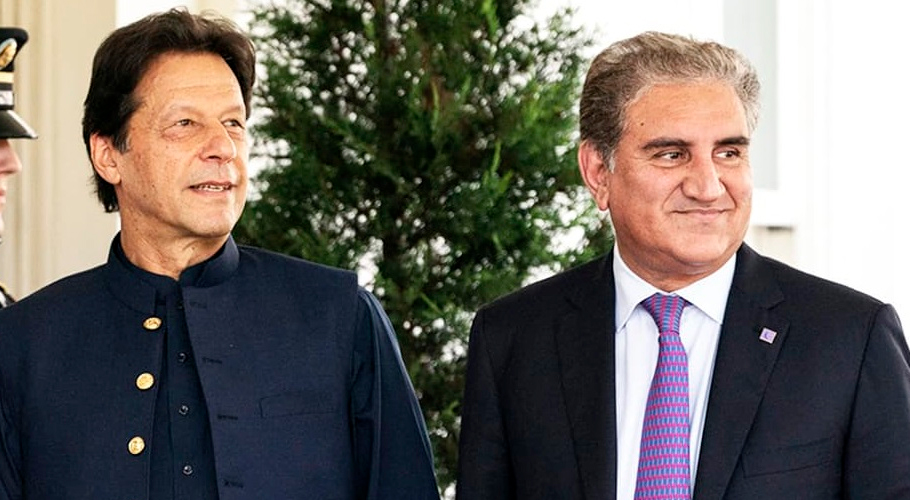In another major relief, the Islamabad High Court (IHC) has acquitted PTI founder Imran Khan and former foreign minister Shah Mahmood Qureshi in the cipher case. The verdict was announced by IHC Chief Justice Aamer Farooq and Justice Miangul Hassan Aurangzeb. They accepted the appeals from both the former premier and the diplomat against their convictions in the case.
Despite this acquittal in the cipher case, neither Imran nor Qureshi is expected to be released from prison. Imran Khan remains incarcerated due to his sentence in the Iddat case. Shah Mahmood Qureshi has been re-arrested in cases related to the May 9 incidents.
A special court under the Official Secrets Act had sentenced both Imran and Qureshi to ten years in prison in January. This decision was made by Judge Abual Hasnat Zulqarnain, who had appointed state counsel for them.
The cipher case involves a diplomatic document. The Federal Investigation Agency (FIA) alleges that Imran Khan, during his tenure as PM, did not return this document. Imran has claimed that the document contained a threat from the US to topple his government.
The case has a detailed history. Imran and Qureshi were first indicted in October and both pleaded not guilty. The IHC had previously deemed the government’s notification for a jail trial erroneous and scrapped the proceedings.
Last month, the special court restarted the cipher trial at Adiala district jail. Imran and Qureshi were indicted again on December 13. On December 22, the Supreme Court approved post-arrest bail for both. Despite this, Imran stayed in jail due to other cases, and Qureshi was re-arrested in a May 9 case.
Justice Miangul Hasan Aurangzeb had put a stay on the special court proceedings, citing legal errors. However, this stay was lifted after the state counsel assured fresh recording of witness statements.
On January 18, the special court recorded statements from five witnesses, including former principal secretary Azam Khan. Azam Khan testified that the cipher was never returned to his office and he had informed the prime minister and relevant staff multiple times.
The caretaker government then approached the Supreme Court, challenging the IHC’s verdict. Imran Khan later stated that the cipher was still with the Ministry of Foreign Affairs, and he received a rephrased version of the document.
On January 22, more witnesses, including ex-foreign secretary Sohail Mehmood and former interior secretary Yousaf Naseem Khokhar, testified. Mehmood confirmed that the copy sent to the ex-PM was never returned, while Qureshi insisted he returned it to the ministry.
The next day, six more prosecution witnesses testified. Initially, there were 28 witnesses, but only 25 gave their statements after three were dropped.
Interior Secretary Aftab Akbar Durrani and ex-envoy to the US Asad Majeed also recorded their statements. Majeed noted there was no mention of “conspiracy” or “threat” in the diplomatic cable, prompting Imran to question why a demarche was issued to the US.
In subsequent hearings, the court completed cross-examinations of four prosecution witnesses. The FIA prosecutor accused the defense of delaying tactics and urged the court to close the defense counsel’s cross-examination rights. Judge Zulqarnain then appointed Abdul Rehman and Hazrat Younis as defense counsel for both PTI leaders.
Imran argued that his lawyers were busy with the upcoming general elections and described the trial as a “joke,” criticizing the government’s involvement in both prosecution and defense.
Qureshi attended the proceedings, while Imran was reluctant to appear before the judge. Only three court reporters were allowed to cover the cipher case proceedings, which lasted over 13 hours.


